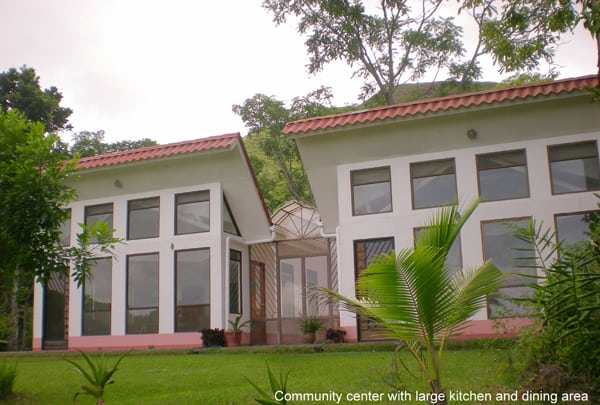I retired early and in good health. Finally, I could follow my dream of living in a warm country where costs of living are a fraction of those costs in the United States. During my younger years, I had several well-traveled friends who extolled Costa Rica as a great retirement destination: a stable, peace-loving democracy; friendly locals; welcoming to U.S. ex-pats, and so beautiful. With year-round temperatures in much of the country in the 70s and low 80s, no central air nor heating was needed.
In 2003 my husband and I arrived on our farm in a small, rural village in the mountains about 30 miles from Pacific beaches. We welcomed each day with a fabulous sunrise, freshly cut flowers, fresh fruit and great coffee from our land. Although our marriage ended in divorce a few years later, I remained there and grew to love my adopted country and beautiful, newly built home. (Unknowingly, we had brought the seeds of the end of our marriage with us. Costa Rica did not cause it.)
My 28-acre farm had been free of chemical pesticides, herbicides and fertilizers since 2000, and I was committed to keeping it organic. I continued to invest in improvements: reforesting; planting fruit trees and flowering bushes; developing permaculture plans, improving the system that brings pure water up from my spring; and contributing to paving part of the village’s gravel road. I felt welcomed by my campesino neighbors and made connections with people at the nearby organic, chocolate farm and the educational facility, Rancho Mastatal, which teaches sustainable building and farming practices. I expanded my activities into the Central Valley and the towns along the 40-mile route to the capital, forming friendships with Ticos and ex-pats from many countries.
Yet, I longed for people who would join me in creating a cooperative venture, possibly building small homes on lots and working together to develop the farm’s untapped potential. The possibilities included: expanding the humane production of cattle, chickens and pigs; raising horses and developing trail rides; expanding organic coffee production; growing medicinal herbs; building cabins for tourists; or creating an educational/retreat center for healing, spiritual growth or organic farming classes. There were so many possibilities that I would love doing with partners, but I did not want to take them on alone.
Although at the time I did not know the word to identify what I wanted to create, I learned later that it was called cohousing. Cohousing is a type of intentional community where people come together with common goals and investments, but typically have a lot of autonomy and as much privacy as they wish. It is not an ashram or a monastery. Cohousing started in Europe and has made some inroads in the U.S. but is still not well known in Costa Rica. However, the government does support the development of cooperatives, which are similar.
I knew of a few cohousing and cooperative ventures, but they were not well understood and tended to run contrary to Costa Rica’s cultural expectations. When I began to explore the possibilities, I was probably several years ahead of the time when such ventures were likely to be successful. Had I been twenty or thirty years younger, I would have tried, but as I aged, I realized I did not want to take on a large project, and I missed my family. So, I made plans to leave and would like to sell my farm to someone who can see the potential. The Costa Rican government has just committed to paving the rest of the road going from San Jose to the Pacific Coast, passing two miles from my farm and making travel faster and easier.
So, why Costa Rica? Other warm countries have a lower cost of living, but how many of those have the commitment to democracy and seven decades of political stability? The United Nations World Happiness Report ranks 156 countries on such qualities as per capita income, healthy life expectancy, social support, generosity, trust in government, and absence of corruption. Over recent years, Costa Rica is ranked in first place for Latin America and in 12th place worldwide. (The U.S. ranks number 19 worldwide.)
As I reflect, I am happy for my years in Costa Rica. It was a great way to spend the first part of my retirement. During one’s working years, travel is typically limited to short stays. Living in another country provides the opportunity to experience another culture more authentically than just passing through, and it allows you to feel your own culture more sharply. It leads you to examine your assumptions about yourself and the world. Many ex-pats do spend the rest of their lives in Costa Rica, as I expected to when I first arrived. But later it became important for me to be closer to my family again. I was deeply enriched by the many people I got to know in Costa Rica, and I carry them with me.
So my place, Sunrise Mountain Farm, is available to a buyer with the inspiration to create something wonderful for future generations.
See this listing in The Tico Times
For more information you can contact me, Carol, at c_marujo@yahoo.com.
This story was sponsored.






